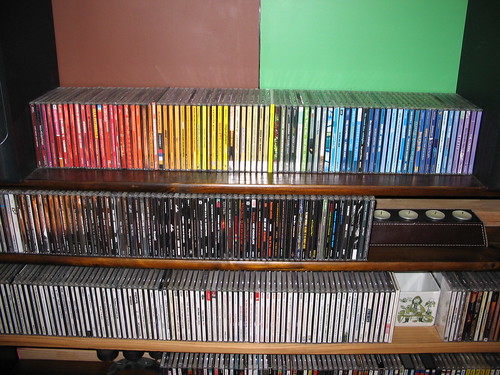Last week I watched one of my favourite MST3Ks, 1964's 'Kitten with a Whip', for the fifth or sixth time. It's part of the wonderful 'Girls Gone Bad' genre, and stars 60s sex symbol Ann-Margret and dependable bland guy John Forsythe. It's got it all: gorgeous dames who cause no end of trouble, uptight men in grey suits who can't handle them, and debauched teenagers who have been rendered unbelievably quaint by the passage of forty years. There's a scene in which a bunch of teenaged nogoodniks have a party, which turns out to consist of them quietly drinking themselves into a stupor and listening to rather good jazz records. I've been to formal dinner parties that were more bacchanalian.
The odd thing about 'Kitten with a Whip' is that, unlike most other episodes of MST3K, it doesn't seem to have generated any presence on the internet. There are few reviews, fewer pictures, and absolutely no quotes. This is an outrage! I refuse to stand idly by while the genius of the MST3K boys and Miss Ann-Margret goes unrecognised!
This is also a good opportunity to demonstrate the humour of MST3K to my fellow Australians and any others not familiar with it. The first half hour especially is thick with gags, and I've reproduced as many of them as I can below, although unfortunately I have to leave out the majority of them, since they rely on visual cues. But them's the breaks.
The movie begins, in true mid-60s style, with bold lines sliding up and down the screen, framing the opening credits and the title: Kitten with a Whip.
Mike: Ooh, the hottest Garfield episode ever.
Tom: Puppy with a nunchaku.
Crow: Dik-dik with brass knuckles.
Mike: Yak with a kentucky long rifle.
Crow: Hamster who writes a strong letter to the Times!The opening scene introduces us to our heroine, running over a moonlit hill dressed only in a scant nightie.
Tom: Gentlemen, we have our kitten.Crow: You know Ann-Margret can raise a few welts on me anytime.She tries to leap onto a moving freight train...
Crow: Ann-Margret in 'The Woody Guthrie Story'!... but fails.
Mike (as Ann): Oh man, how am I going to get to the hobo gathering?She eventually comes across a large suburban ranch house.
Crow: Ah, she's going to vandalise Mr Ed's house!She sneaks around to the back door...
Crow: Convenient home delivery of Ann-Margret.... and breaks in, finding herself in a room full of stuffed toys and kiddie furniture.
Crow: Oh, it's Michael Jackson's house.
Mike: Teddy with a truncheon.Exhausted, Ann climbs into the bed...
Tom: Russ Meyer's 'Goldilocks'.... and selects a stuffed toy to snuggle up to.
Mike (as stuffed toy): Ah, lady, wait, I'm not ready for this... I think we're moving to fast... I mean I don't even know you... I'm flattered of course, but... ooh... ahhh...Later that night, we're introduced to the house's owner, shipping magnate and senatorial candidate David Stratton. His wife and daughter are away on vacation, and he is oblivious to Ann's presence until the next morning, when he walks into his daughter's room and finds Ann in her bed.
Crow (as David): Well, this is going to be much better than pancakes!He demands to know who she is.
David: Let's start with the easy part; your name. You do know your name?
Tom: Kitten W. Whip.
Ann: Jody. Jody... Jo. Well, that's what I call myself.
David: Very creative. Now the one you were born with.
Crow: (in deep male voice with thick Brooklyn accent) Stanley Myron Hendleman.Ann makes a sudden break for it, but the angry David catches her before she reaches the front door.
Tom: I think Senator Kennedy might have handled this differently.In a lengthy monologue, Ann explains that she's running away from her mother's abusive boyfriend.
Ann: How I got this far I'll never know.
Crow: Perhaps it was your pert acting ability?Chastened by this teenaged blonde in a short, flimsy nightie, David is contrite.
David: All I've been thinking about is the damage you might be doing me.
Tom: Well, that's not all I was thinking about...Aaaaand we'll just stop there, before I cross the line between "loving homage to favourite TV show" and "scary obsessive fanboy transcription".
The movie goes on to reveal that Ann-Margret is a Bad Girl, one who is likely to ruin David's marriage, political career and overall life just for kicks. Things go from bad to worse as he's introduced to her delinquent friends, and he's blackmailed into smuggling them over the border into Mexico, where there's more drinking, violence, strippers and novelty sombreros. Will David survive the Kitten with a Whip? Will he be forced to take a break from blandness? Will Ann-Margret squander all the goodwill she generated by starring opposite Elvis in 'Viva Las Vegas' earlier in 1964?
The only way to find out is by downloading it from the
Digital Archive Project for yourself.








